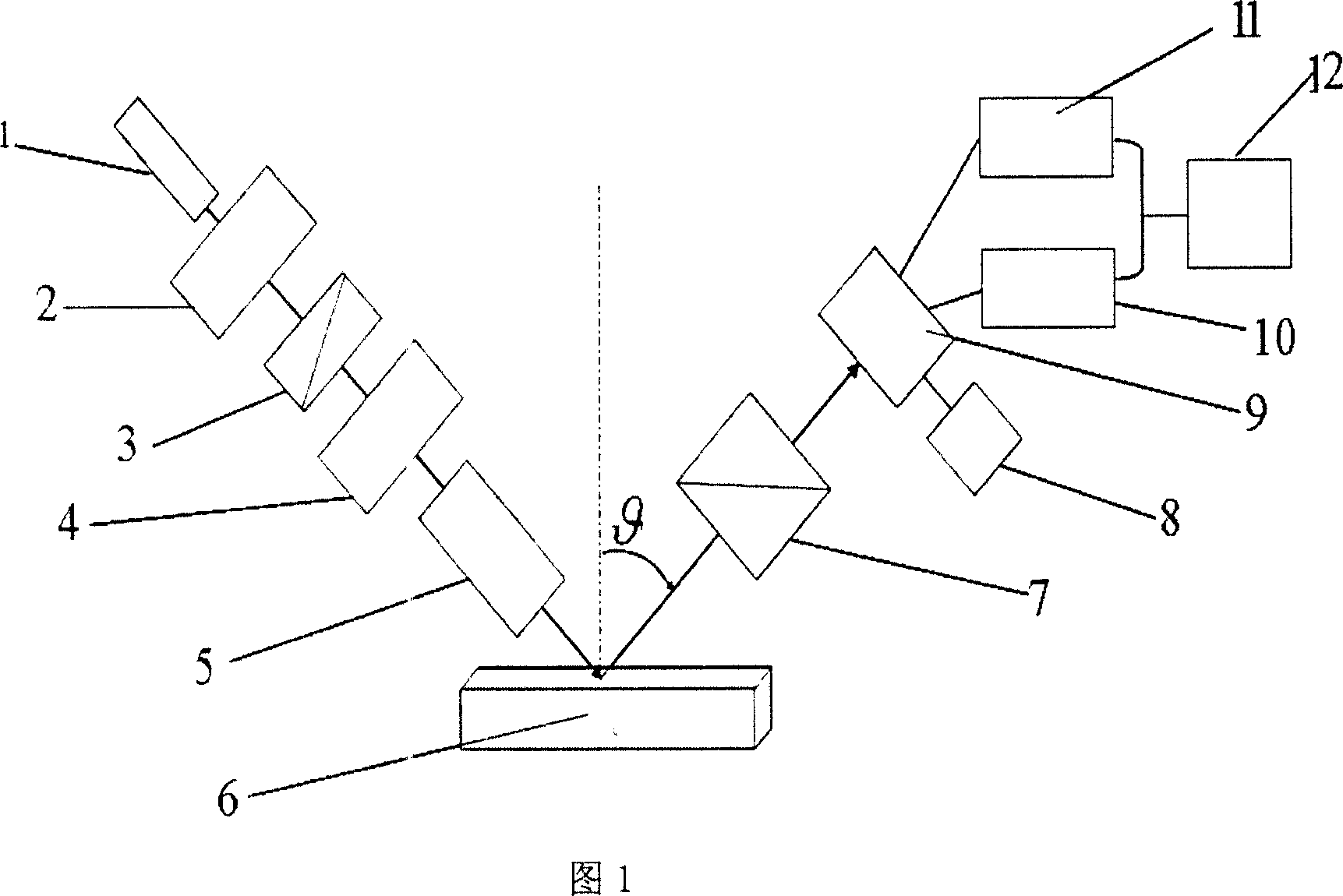Device for high-throughout monitoring micro-array biomolecule reaction by light reflection difference method
A biomolecular, high-throughput technology, applied in the field of microarray biomolecular reaction monitoring devices, to achieve the effect of improving signal-to-noise ratio, high work efficiency, and easy operation
- Summary
- Abstract
- Description
- Claims
- Application Information
AI Technical Summary
Problems solved by technology
Method used
Image
Examples
Embodiment 1
[0033] Referring to Figure 1, a device for high-throughput monitoring of microarray biomolecule reactions is made by the light reflection difference method.
[0034] The device is composed of an incident light path, a sample stage 6, an output light path, and a data acquisition and processing system. The incident light path includes a polarizer 2, a photoelastic modulator 3, and a phase shifter 4 on the optical path in front of the laser 1 output light. And the beam expander 5; the exit light is routed to the analyzer 7 and the photoelectric signal converter 9. The incident light beam emitted from the incident light path is reflected by the sample on the sample stage 6 and then sequentially passes through the analyzer 7 and the photoelectric signal The signal converter is electrically connected to the data acquisition and processing system 12. The photoelectric signal converter is composed of a silicon photodiode array 9, a switch circuit, a first lock-in amplifier 10, and a secon...
Embodiment 2
[0041] In this embodiment, the phase shifter 4 adopts a Puck box with a model of Cleveland Crystal IMPACT10. Others are the same as Embodiment 1. The sensitivity of the device in this embodiment can be improved by an order of magnitude compared with Embodiment 1.
Embodiment 3
[0043] In this embodiment, the switch circuit 8 is used instead of the relay switch circuit. Others are the same as the embodiment 1. The time for the device to monitor the same biochip sample can be shortened by 0.5 minutes compared with the embodiment 1.
PUM
| Property | Measurement | Unit |
|---|---|---|
| Wavelength | aaaaa | aaaaa |
| Diameter | aaaaa | aaaaa |
Abstract
Description
Claims
Application Information
 Login to View More
Login to View More - R&D
- Intellectual Property
- Life Sciences
- Materials
- Tech Scout
- Unparalleled Data Quality
- Higher Quality Content
- 60% Fewer Hallucinations
Browse by: Latest US Patents, China's latest patents, Technical Efficacy Thesaurus, Application Domain, Technology Topic, Popular Technical Reports.
© 2025 PatSnap. All rights reserved.Legal|Privacy policy|Modern Slavery Act Transparency Statement|Sitemap|About US| Contact US: help@patsnap.com

